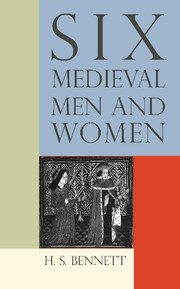Humphrey, Duke of Gloucester
Published online by Cambridge University Press: 05 June 2016
Summary
In August 1390, Henry, earl of Derby, the eldest son of John of Gaunt, joined the army of the Teutonic Order, in response to an invitation by the grand master, inviting knights of all nations to take part in a military expedition against the heathen Lithuanians on the north-east border of Germany. The Order had for centuries been active in propagating Christianity by fire and by sword, and frequently during the past fifty years had been on warlike terms with their neighbours in Lithuania. Henry joined the main forces of the army on 22 August and from then on, with his knights and retainers to the number of about two hundred, took part in many skirmishes and battles until the attackers were held up outside the Lithuanian capital of Wilna. Although they won some partial success, after about five weeks of indecisive fighting, with autumn approaching, sickness in their midst and rations running out, they retired, and Henry set up his quarters for the winter at Königsberg. It was there, during the first few days of November, that a sailor brought Henry the news of the birth of his fourth son which had taken place a month or so earlier. The earl gave the sailor a mark (13s.4d) for his pains—the equivalent of six or seven weeks' pay.
Henry, of course, as the eldest son of John of Gaunt, was wealthy and had great expectations, while his wife was a co-heiress of Humphrey de Bohun and owner of vast estates. Their fourth son was named Humphrey in memory of his grandfather. Thus descended from two of the richest and most powerful families in England, the young boy's prospects were favourable indeed. Presumably he was brought up in such a fashion as befitted his position, living with his brothers and sisters on various family estates, mostly in the west country. His mother died when he was only four years old, so that he was left in the care of a nurse, who in turn was succeeded by a governess, and later by a master. Such domestic accounts as survive are not very revealing.
- Type
- Chapter
- Information
- Six Medieval Men and Women , pp. 1 - 29Publisher: Cambridge University PressPrint publication year: 2013



